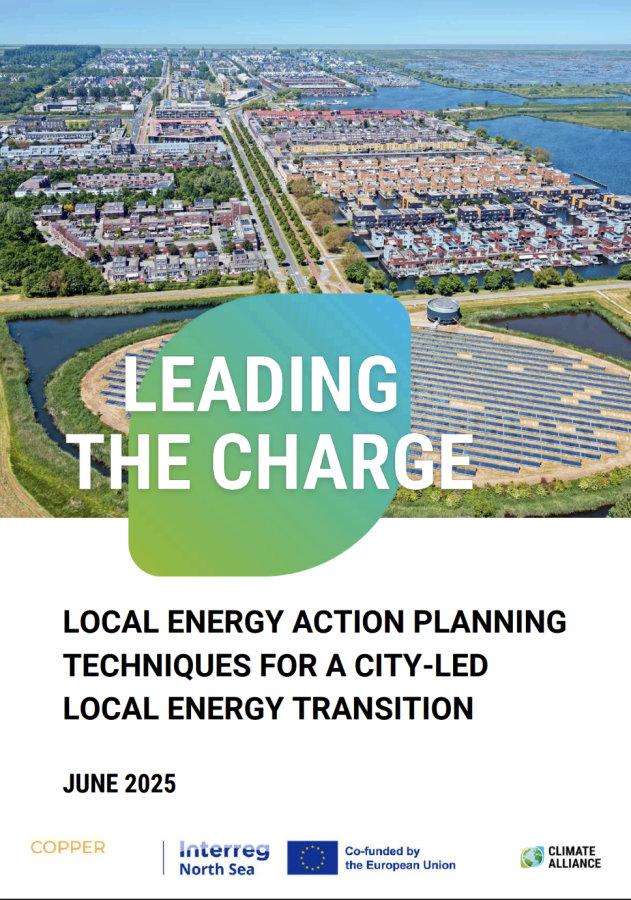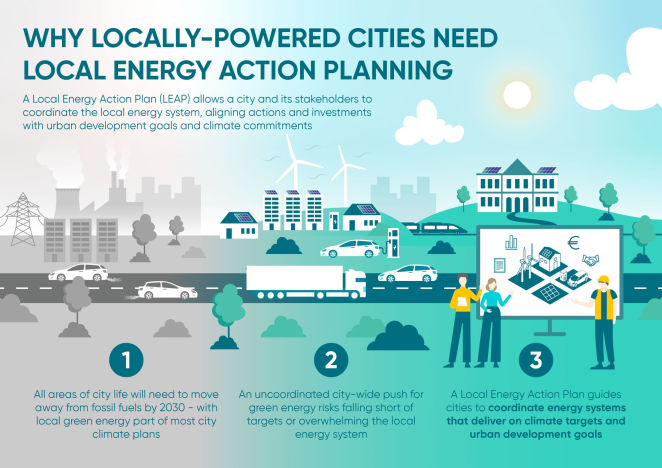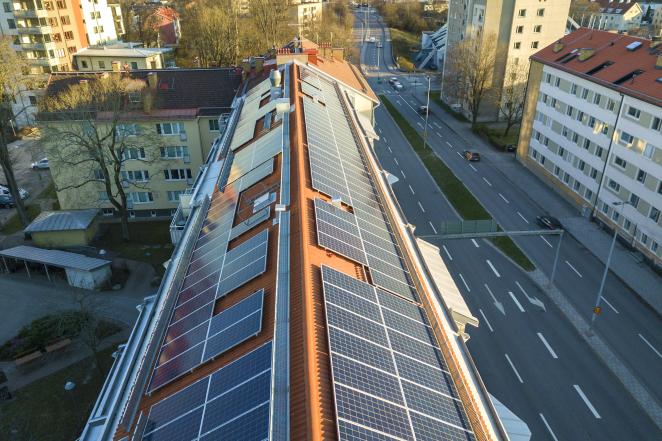
Leading the charge - local energy action planning for cities
"Leading the Charge: local energy action planning techniques for a city-led local energy transition" highlights 25 examples from 12 cities where municipalities in Northern Europe are pioneering innovative strategies for an accelerated, affordable, and competitive energy transition, often in collaboration with the Distribution System Operator.
With fast-approaching climate targets, new European energy regulation and concerns about the affordability of energy for citizens and businesses, frontrunner cities are exploring new ways to manage, partner and deliver a local energy transition.

Five best practices identified for energy planning
Featuring case studies and testimonials from 12 pioneering cities in Northern Europe, the study identifies several best practices that form part of a 'local energy action planning' approach, including:
- Securing political engagement in energy management: Ensuring long-term buy-in and unified city approaches.
- Enhanced DSO-city collaboration: Moving beyond operational interactions to strategic partnerships for long-term planning.
- Formalising cross-department energy management: Integrating energy considerations across all municipal services and departments.
- Exploring new market-based roles for the public sector: Leveraging public guarantees and establishing local energy companies to accelerate sustainable solutions.
- Actively engaging business stakeholders: Working with businesses to ensure they benefit from and contribute to the energy transition, improving grid resilience and promoting demand-side flexibility.
With a mix of small, medium, and large cities interviewed, the study serves as a resource for anyone working on the energy transition within a European city, offering insights into the latest techniques for developing and implementing effective local energy action plans.

About Local Energy Action Planning
Local energy action planning is an emerging local energy governance approach in which cities set a cross-departmental vision for energy and create politically-backed formal collaboration agreements with Distribution System Operators to accelerate the local energy transition.
In COPPER, six cities are developing local energy action planning techniques across a number of - including electric mobility, heating and green hydrogen development.

About this study
This research was conducted in collaboration with Bax Innovation, as part of the European innovation initiative COPPER, co-funded by Interreg North Sea.
Climate Alliance is a member of the COPPER project, which is developing local energy action planning techniques led by cities in collaboration with local energy stakeholders. Climate Alliance brings the insights of its nearly 2,000 members to the initiative.
